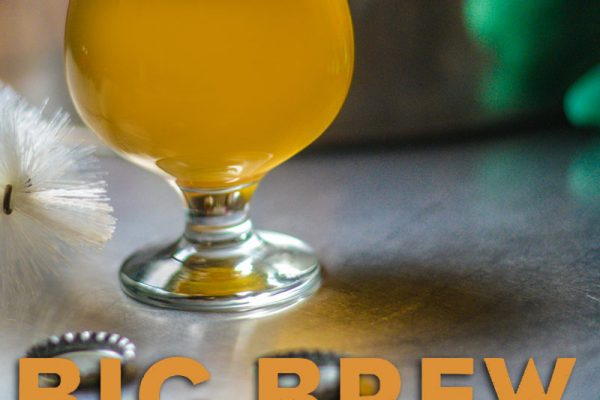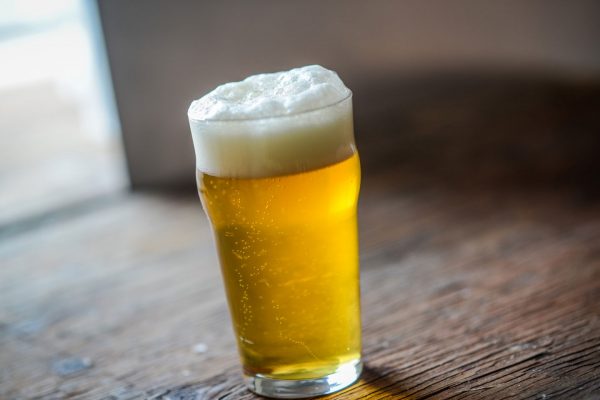
In 1516, the Reinheitsgebot—commonly referred to as the “German Purity Law”—initially went into affect in Bavaria. Though earlier variations of the law were adopted almost half a century before its official enactment on April 23 that year, the law eventually would go into effect across all of Germany.
Among other reasons, the law was originally adopted to control the price of grain used in the brewing process and only allowed brewers to use three ingredients in their beer: water, hops, and barley. The law has since been adapted to modern regulations, but its impact on the history of brewing and beer styles is still renowned today.
In honor of the 500th anniversary of the Reinheitsgebot, the American Homebrewers Association is celebrating its impact by encouraging homebrewers worldwide to brew their choice of two recipes: a Northern German Altbier or a spiced beer.
The Summertime Ginger Ale homebrew recipe uses malt, hops, and water, but also tosses in honey, lactose, and ginger to really throw those Reinheitsgebot purists into a dizzy.
In 1516, the Reinheitsgebot—commonly referred to as the “German Purity Law”—initially went into affect in Bavaria. Though earlier variations of the law were adopted almost half a century before its official enactment on April 23 that year, the law eventually would go into effect across all of Germany.
Among other reasons, the law was originally adopted to control the price of grain used in the brewing process and only allowed brewers to use three ingredients in their beer: water, hops, and barley. The law has since been adapted to modern regulations, but its impact on the history of brewing and beer styles is still renowned today.
In honor of the 500th anniversary of the Reinheitsgebot, the American Homebrewers Association is celebrating its impact by encouraging homebrewers worldwide to brew their choice of two recipes: a Northern German Altbier or a spiced beer.
The Summertime Ginger Ale homebrew recipe uses malt, hops, and water, but also tosses in honey, lactose, and ginger to really throw those Reinheitsgebot purists into a dizzy.
Ingredients:
- 2.0 lb (0.91 kg) 2 row malt
- 1.0 lb (0.45 kg) Belgian aromatic malt
- 1.0 lb (0.45 kg) clover honey (added to the boil)
- 0.5 lb (0.23 kg) lactose (added to the boil)
- 1.0 oz (28 g) Spalt whole hops, 2.5% a.a. (45 min)
- Wyeast 2565 Kölsch Yeast, or White Labs WLP029 German Ale/Kölsch yeast, or a sufficient yeast starter
- 0.75 tsp (3 g) Irish moss added 15 minutes before end of the boil (optional)
- 2 oz (56 g) fresh chopped ginger added to the boil (15 min)
- 2 oz (56 g) fresh chopped ginger added to secondary fermenter for 7 days
Specifications:
Yield: 5 Gallons (18.93 L)
Original Gravity: 1.028
Final Gravity: 1
ABV: 3.68%
IBU: 19
SRM: 6
Directions:
To brew the Summertime Ginger Ale, mash grains at 152° F (67° C) for 60 minutes. Mash out at 168° F (76° C), with pre-boil wort volume of 6.5 gal. (25 L). Bring to a rolling boil for 60 minutes, add hops, honey, lactose, and ginger at specified intervals from end of boil. Chill wort to 65° F (18° C) and pitch yeast. After 5 days, rack to secondary fermenter and age for another 10 days, adding remaining ginger for the last 7 days. Keg at 2.5 volumes of CO2 or bottle condition with 4 oz (113 g) corn sugar.
Extract Version
Ingredients:
- 2.0 lb (0.91 kg) extra light dry malt extract
- 1.0 lb (0.45 kg) Belgian aromatic malt
- 1.0 lb (0.45 kg) clover honey (added to the boil)
- 0.5 lb (0.23 kg) lactose (added to the boil)
- 1.0 oz (28 g) Spalt whole hops, 2.5% a.a. (45 min)
- Wyeast 2565 Kölsch Yeast, or White Labs WLP029 German Ale/Kölsch yeast, or a sufficient yeast starter
- 0.75 tsp (3 g) Irish moss added 15 minutes before end of the boil (optional)
- 2 oz (56 g) fresh chopped ginger added to the boil (15 min)
- 2 oz (56 g) fresh chopped ginger added to secondary fermenter for 7 days
Specifications:
- 5 Gallons (18.93 L)
- Original Gravity: 1.028
- Final Gravity: 1.000
- SRM: 6
- IBU: 19
- ABV: 3.68%
Directions:
To brew an extract version of Summertime Ginger Ale homebrew recipe, put 2 gallons (7.6 L) of water in the boil pot and heat to150° F (66° C). While the water is heating, put the Belgian aromatic malt into a grain bag and tie off the ends so the grains can't escape.
Once the water has reached 150° F (66° C), immerse the grain bag in the water for 30 minutes. For more information on steeping specialty grains, visit the Intermediate section of Let's Brew on the AHA website.
After 30 minutes, remove the grain bag and let it drip until it stops. Add the extra light dry malt extract to the water and stir until totally dissolved. Bring to a rolling boil for 60 minutes; add hops, honey, lactose, ginger, and Irish moss at specified intervals from end of boil.
Strain wort into sanitized fermentation vessel with 2–3 gallons (7.6–11.4 L) of pre-boiled and chilled water for a total volume of 5 gallons (19 L). Pitch yeast when temperature reaches 65° F (18° C).
After 5 days, rack to secondary fermenter and age for another 10 days, adding remaining ginger for the last 7 days.
Keg at 2.5 volumes of CO2 or bottle condition with 4 oz (113 g) corn sugar.



Share Post